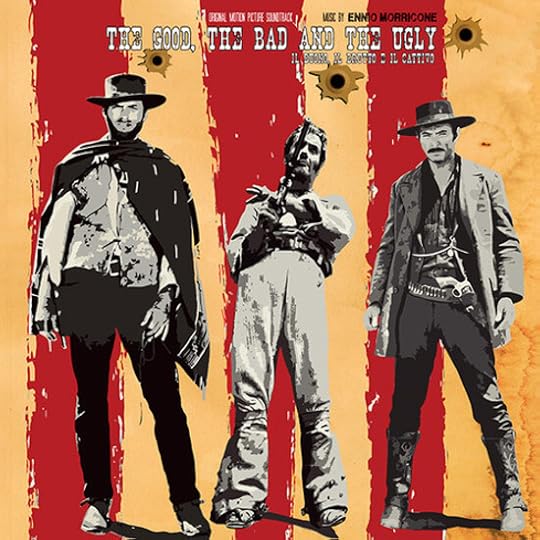Modern Publishing – The Good, The Bad, & The Ugly

The Good
The rise of self publishing. There’s still an elitist mentality in some quarters, especially the established old brigade who think that self-publishing doesn’t really count, but what it has done is level the playing field. Writing and publishing books used to be the exclusive domain of the well-off and/or well-educated. Now, there are more publishers then ever before (and I’m not just talking about vanity publishers, though those parasites still exist) and if all else fails literally anyone can write a book and self publish it on platforms like Amazon and Smashwords. It’s very punk. You don’t even need much technical know-how. All you really need is motivation.
The Bad
Also the rise of self publishing. There are two sides to every coin, as they say. There may be more publishers around now than ever before, but most of them don’t have two pennies to rub together. There’s no big advance, and no marketing budget. Most are struggling just to stay afloat. And the self publishing route is even more fraught with danger. The main problem with self-publishing is that most releases sink like stones. Effective marketing is not only expensive, but a complete mystery to most of us.
Plus, there is very little, if any, quality control. There are millions of books published each year, and the number is climbing. Some are brilliant. Some are terrible. Most are somewhere in between. It’s not for me to say what makes a book terrible, suffice to say that just because you CAN write books, it doesn’t mean that you should. I apply the same logic to robbing banks.
The Ugly
Discrimination. For starters, can we all agree that racism, sexism, ageism, classism, elitism, nepotism, and most other isms, are bad? They are divisive, restrictive and create disharmony and hostility. Mankind should have evolved past all that by now. I believe the world should be an even playing field, and your gender, sexuality, age or skin colour shouldn’t affect how other people view you or your work.
Yet apparently in the publishing industry it’s still okay to judge people this way. How often do you see limited submission calls? Some are restricted to gender or sexual persuasion, some to particular countries or territories, others to various minority groups.
An increasing number of markets have things like this in their guidelines:
Seeking original submissions exclusively from people aged 22-24, from Prestatyn, who like the colour purple and currently identify as squirrels.
Okay, that’s an extreme example, but you get the point. Now before you stand up and scream BUT IT’S NOT THE SAME THING! How about you take a minute to ask yourself why? Why isn’t it the same thing? Discrimination is discrimination however you dress it up, and we all have ways of making it more palatable.
The real irony here is that most of these publications claim to advocate equality, yet in practise promote the exact opposite. Instead of erasing the lines that divide people, they are pouring cement on those walls and rubbing their hands with glee as they grow higher and higher. In my mind that is both hypocritical and counterproductive. When did two wrongs make a right?
It makes no difference to me whether the author of whatever I am reading is male, female, black, white, straight, gay, something in between, or whatever. I honestly couldn’t care less. I’m all about the writing. If someone asks me what the last book I read by a [insert label here] author was, I probably wouldn’t be able to answer because I don’t look. Should I? Sexual orientation or race don’t factor into my decision-making.
Can you imagine what would happen if a publisher put out a submission call along the lines of, “Seeking material from straight, white males ONLY.”
There would be a public outcry, and rightly so. That publisher would probably be branded a far-right Nazi and cancelled quicker than Firefly. And if you don’t get the reference, Google is your friend. So why are submission calls specifically requesting work exclusively from other demographics considered okay?
The Solution
Personally, I think publishers would be better served having an ‘open door’ policy, where the story is king (or queen), and people are judged solely on the strength of their work, rather than any number of other variables. That would be refreshing, and altogether more progressive, wouldn’t it?
How about we go one step further and advocate a universal ‘blind’ submission policy where all identifying information is removed from manuscripts and not even the editors know whose work they are reading. That way, there can be no discrimination either way, and only the very best work is selected for publication, thereby giving the reader the best quality product. That should be the primary goal anyway, rather than virtue signalling or furthering whatever political agenda an individual might have.
After all, any self-respecting writer would prefer to have their work published on merit rather than just to tick a box somewhere.
Ask them.



